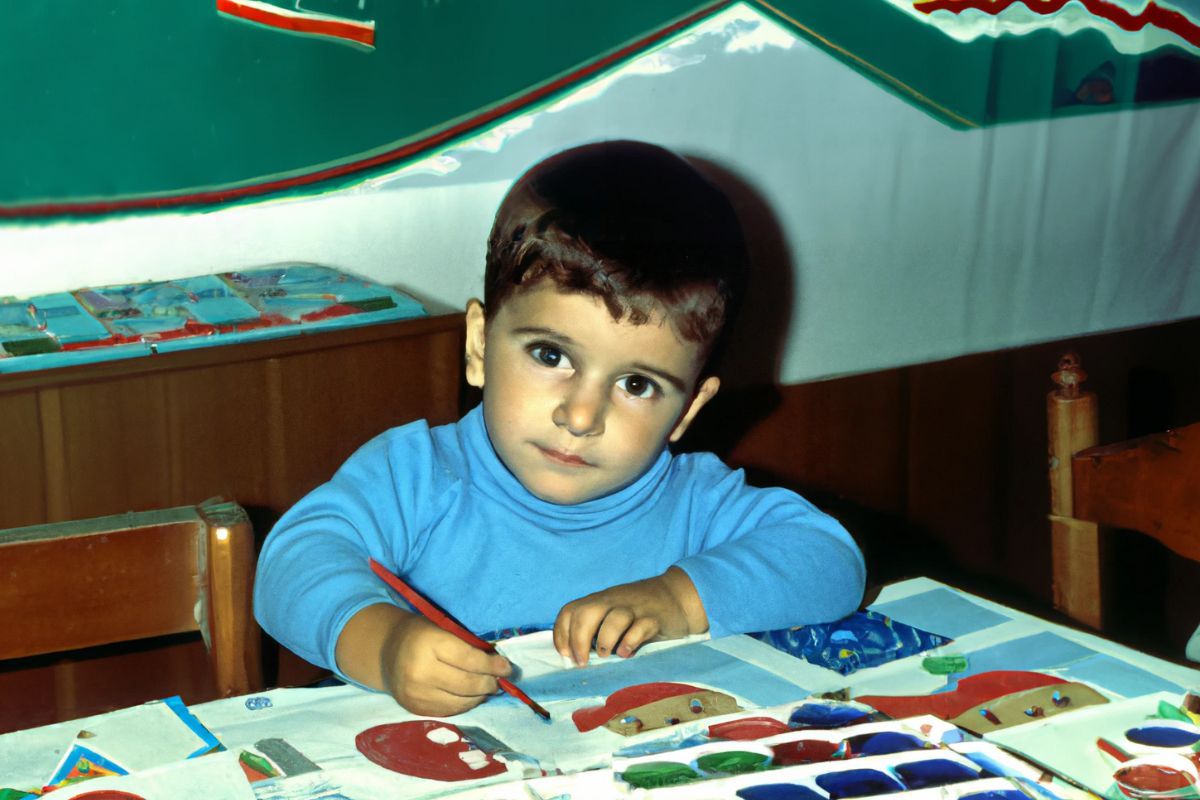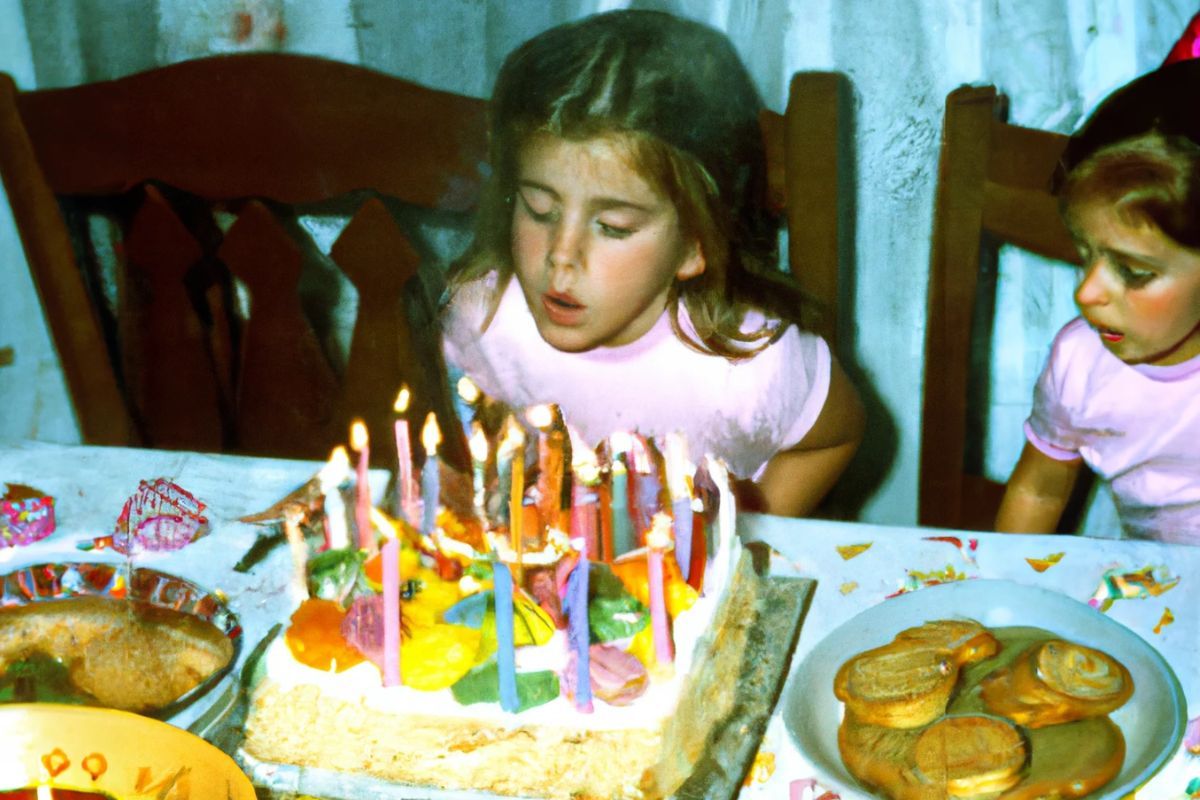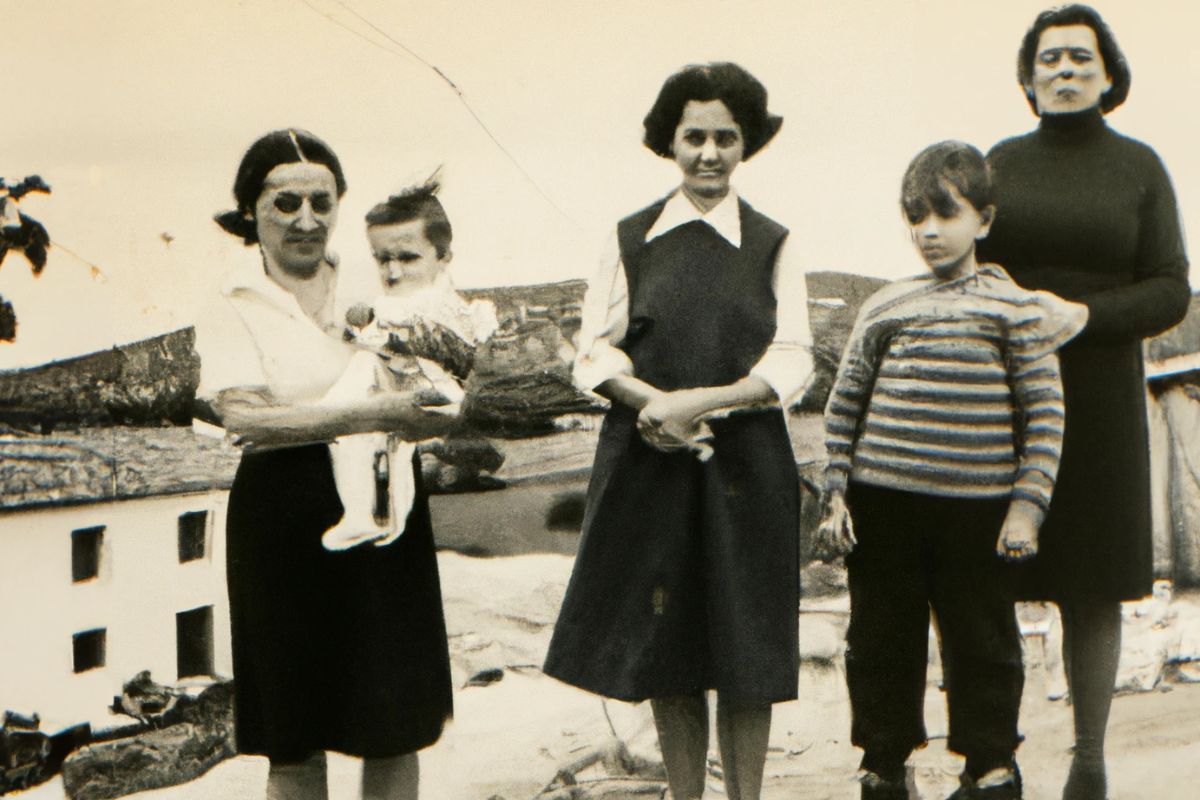For 80 years the family of photographer Maria Mavropoulou fled wars and dictatorships, losing memories and photographs. The artist asked the artificial intelligence to reinvent the story of his loved ones
The title says it all: Imagined Images. That is, “imagined images”. This is how the Greek-Russian artist Maria Mavropoulou called her latest project: over 400 images that seem like “shots” from her family album. In reality, they are not photographs, but inventions created with Artificial Intelligence.
«My ancestors and my parents moved several times from one country to another in the world and part of their memories, documents, photographs were lost. My paternal grandfather left Greece when he was still a boy. His family was communist and, during the civil war in the 1940s, he fled to Uzbekistan, then part of the Soviet Union. My mother is Russian, she and my father met there and got married. I was born in 1989 and I was almost a year old when my parents returned to Greece”, says Maria.

Mavropoulou for Imagined Images used DALLE, an Artificial Intelligence algorithm developed by Open AI, the same company as ChatGPT, capable of generating images starting from text. «Usually the program is asked to create an image as close as possible to the one you want. Mine was more of a collaboration.
Once I had provided some written information and suggestions (for example: “There is a family gathered for lunch on a public holiday in the 90s in Greece”) I left the algorithm the freedom to create.” How? In essence, processing thousands, millions of family photographs taken in similar situations. «The algorithm provided four versions each time. Which changed if I repeated the same request. The surprising thing is that the Artificial Intelligence seemed to know more than me about certain details such as the uniform my mother wore at work or some elements of the house where our family lived. My mother, looking at the results, was moved several times.” Another interesting aspect, says Maria, is that, despite providing the algorithm with rather generic inputs, it always obtained images that were similar to each other. «Artificial Intelligence somehow provided a “statistical average” of the photographs that people had taken and posted on the Internet. And all families follow the same clichés: birthday parties, weddings, lunches, holidays… We all want to immortalise the best of our history.”

Mavropoulou asked the algorithm to recreate for her even life moments that never happened and that she would have liked to happen. The result, she says, was therapeutic. «My family returned to Greece with nothing, my parents had to sell everything they owned in Uzbekistan. They had to start from scratch. I didn’t have an easy childhood because we couldn’t afford to go on holiday, I never had a birthday party: creating images of happy moments that I would have liked to experience was a way to make up for that lack. The same when it came to filling in the gaps with respect to certain relatives I never knew, such as my maternal grandparents. Now every time I look at the image that Artificial Intelligence has created of my maternal grandmother it seems to me that it really is her, even if I don’t know what she looked like.”

But Imagined Images, in its intentions, leads to many reflections. «Photographs have always been retouched and, starting with Photoshop, modifying them has become within everyone’s reach. But now we are entering a new phase in which photos and videos created by Artificial Intelligence are absolutely realistic. For the first time in the history of humanity we can no longer trust an image. And it is a decisive turning point because we have always defined as real only what our eyes see.”
Mavropoulou also reflected on those millions of people who live in war zones or who are fleeing conflicts. «I thought about Syria, about Russia’s invasion of Ukraine, more recently about what is happening in Palestine. For those who try to escape, defining their history, their origins is fundamental.”

In previous works, Mavropoulou has investigated how Artificial Intelligence represents masculine and feminine. She did it with images that, in 2021, were part of a collective exhibition Her Data. «The algorithms are trained on contents, texts and images, created by human beings. Artificial Intelligence systems adopt the stereotypes widespread in society. But instead of blaming the machines and wondering how to make algorithms more equal and inclusive we should eliminate bias in reality. Do we want to correct society or what reflects it?”.
Images by Maria Mavropoulou
© All rights reserved
artificial intelligence
Discover other Magazine articles










